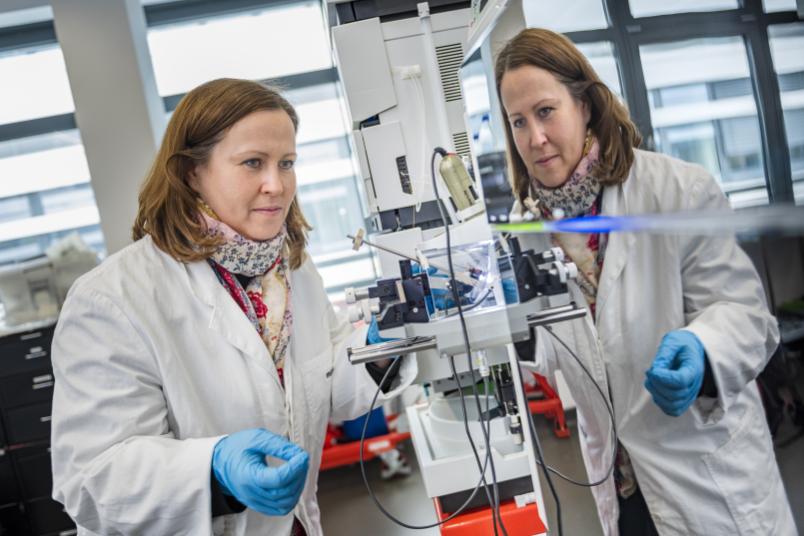
Forensics
Differentiating body fluids with protein analysis
Whether a slimy stain at a crime scene is nasal mucus or semen can make a difference to investigations. But telling bodily fluids apart isn’t easy.
Researchers at Ruhr-Universität Bochum (RUB) have developed a new method to tell different body fluids apart in cooperation with state offices of criminal investigation in NRW and Bavaria. The team headed by Dr. Katalin Barkovits-Boeddinghaus from the RUB Medizinisches Proteom-Center uses mass spectrometry to conduct protein analyses in order to identify blood, saliva, sperm, urine and vaginal secretions. Such analyses can be crucial for solving crimes. Unlike conventional methods, a tiny amount of sample is sufficient, which can also be tested for all five bodily secretions at the same time. The RUB science magazine Rubin reports on the study conducted by the protein researcher from Bochum.
In order to optimise the method for other forensic applications, the Federal Ministry of Education and Research has approved a project that will focus on identifying the blood group and gender from traces left at a crime scene. Starting in May 2022, this project will be funded with 1.35 million euros for a period of two years.
Established methods have drawbacks
There are established methods for identifying body fluids that work similary to Covid-19 rapid tests: This is how blood, saliva, semen and urine can be detected – whereas vaginal secretions can only be detected under a microscope by looking for specific cells. However, these cells are difficult to detect as they break down quickly. One drawback of the established methods is that a separate test has to be run for each body fluid. But in many cases, the available sample is very small.
Funded by the EU’s Internal Security Fund, the RUB team and its cooperation partners developed a method that can analyse a tiny sample for the presence of blood, saliva, urine, semen and vaginal secretions at the same time. It is based on mass spectrometry, which can be used to identify all the proteins contained in a sample.
Secretions have different protein compositions
Different body fluids differ in their compositions. The RUB team identified five to six characteristic protein fragments – namely marker peptides – for blood, saliva, urine, vaginal secretions and sperm, each of which only occurred in one of the body fluids.
The state offices of criminal investigation that cooperated with RUB provided the research team with several samples without revealing what they contained. Using mass spectrometry, Katalin Barkovits-Boeddinghaus’s team looked for traces of blood, saliva, urine, semen and vaginal secretions in each of them – using a single test. The method reliably detected the five body fluids. The sensitivity was higher than with the established methods; for mass spectrometry, even smaller amounts of secretions were sufficient for the test to be successful.
The analysis also provides additional information: if blood, saliva, urine, semen or vaginal secretions are detected by mass spectrometry using marker peptides, it is also immediately obvious that the substance in question can’t be tear fluid, sweat or nasal mucus. “We can’t directly test samples for these three substances, but we can at least rule out the possibility that they are present.” This is because the combination of the applied marker peptides don’t occur in tears, sweat or nasal secretions.
The researchers are hoping to optimise the method: “At the moment, it takes us about one working day to get the final result. We would like to halve this time. We also want to automate the process as much as possible,” as Katalin Barkovits-Boeddinghaus outlines the outlook.